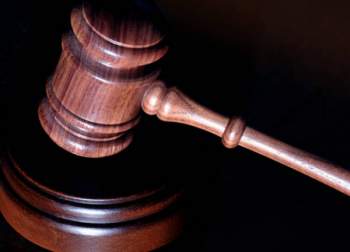
Barron v. Baltimore

The Background of Barron v. Baltimore (1833)
John Barron, a resident of Baltimore, Maryland, sued the City of Baltimore as a result of damages sustained to his commercial operation residing in the Baltimore harbor. The city of Baltimore had enacted the adjustment of water flow on the edge of the Baltimore Harbor, which resulted in insufficient water flow existing within Barron’s property; subsequent to the city’s actions, Barron discovered that boats and ships were unable to dock in his area of the harbor – this resulted in damage to his revenue. Barron sued the City of Baltimore and was awarded monetary restitution for the damages sustained; however, the case was appealed and thereafter heard before the Supreme Court:
Eminent Domain is defined as the ability of a government to repossess lands belonging to its citizens or residents in the event that the property is necessary for ‘public use’; while the classification of public use had yet to be defined in 1833, subsequent court cases involving the process of eminent domain have decided these cases with regard to the qualification of presumed public use as a means to repossess private property
The Case Profile of Barron v. Baltimore
The following is a case profile of the legal trial eponymously titled ‘Barron v. Baltimore’:
Date of the Trial: February 11th, 1833
Legal Classification: Administrative Law; this legal field regulates ‘due process’, which is defined as the government’s obligation to respect, maintain, and uphold the legal rights of its citizens in the event of an arrest. Both the Federal and State government must preserve and protect an individual’s human rights and liberties; this includes fair, respectful, and ethical treatment devoid of undue violence and harm
Accused Criminal Activity: The following criminal activity and charges were cited by John Barron – on behalf of the executor of the estate of John Craig - against the City of Baltimore, Maryland within the appeal brought forth subsequent to the initial ruling:
Barron claimed that the usage of eminent domain was a direct violation of the 5th Amendment of the Constitution, which mandates the government’s obligation to respect, maintain, and uphold the legal rights of its citizen in the event of an arrest; the government must retain an individual’s human rights and liberties – this includes fair, respectful, and ethical treatment devoid of undue damage and harm
United States Reports Case Number: 32 U.S. 243
Date of the Delivery of the Verdict: February 16th, 1833
Legal Venue of Barron v. Baltimore: The Supreme Court of the United States
Judicial Officer Responsible for Ruling: Chief Justice John Marhsall
Involved Parties: The following are the parties named with regard to their involvement in the Barron v. Baltimore case:
John Barron; Plaintiff - Barron v. Baltimore
The City of Baltimore, Maryland; Defendant - Barron v. Baltimore
Verdict Delivered: The Supreme Court ruled in favor of the City of Baltimore, stating that the precepts stated within the 5th Amendment to the Constitution were limited to adherence by the Federal government; due to the fact that the 5th Amendment does not express the requirement of individual State and City governments to adhere to these tenets. As a result of their ruling, the Supreme Court established that individual legislation were not susceptible to the regulation of the 5th Amendment
Associated Legislation with regard to Barron v. Baltimore: The following statutory regulations were employed with regard to the Barron v. Baltimore trial:
The 5th Amendment prevents the unlawful and unethical abuse of power undertaken by a governing body through the implementation of the legal instrument of ‘Due Process’
NEXT: Batson v. Kentucky





















